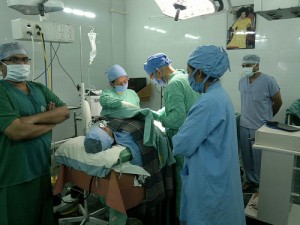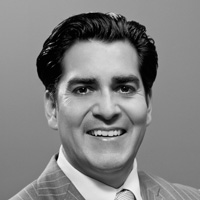 Chances are when you shop at a mall, eat at restaurant or go to an auto dealer to buy a car, you know what you like and don’t like and what you’re willing to pay.
Chances are when you shop at a mall, eat at restaurant or go to an auto dealer to buy a car, you know what you like and don’t like and what you’re willing to pay.
In the above context, shopping is fairly easy. But when you’re “shopping” for a plastic surgeon, it’s sometimes difficult to know what to look for.
Every year, more people get plastic surgery. In 2014, doctors performed more than 15 million cosmetic procedures in the United States alone. There are thousands of plastic surgeons across the country, many of whom are highly skilled and board-certified.
But aside from these two important qualifications, you should evaluate several other factors before you choose a plastic surgeon. Here are some important things to consider:
Check Your Surgeon’s Qualifications
I may have just mentioned it, but it bears repeating again—make sure your plastic surgeon is board-certified. The American Board of Plastic Surgery imposes strict standards for certification. A doctor must have graduated from an accredited medical school and completed several years of extensive training before he or she is board-certified. In addition, you should ask any surgeon you meet about his or her specialty. If you plan to get a breast augmentation, but the surgeon specializes in rhinoplasty and has not performed your specific procedure in several years, then it might be best to look elsewhere.
The American Society of Plastic Surgeons (ASPS) and the American Society for Aesthetic Plastic Surgery (ASAPS) have tools on their websites where you can research board-certified plastic surgeons across the country.
Research Your Doctor’s Track Record
Does your potential plastic surgeon have a history of complaints? Has he or she been censured by the state’s medical board?
You should know the answers to these questions before you pick a doctor. Check in with your state’s medical board to find out whether the surgeon you’re considering has ever faced disciplinary action. The board can provide a report upon request or allow you to access the doctor’s record online. Once you get this information, make sure your surgeon is licensed to practice in your state and review whether he or she has ever had any settlements with patients, as this could be a cause for concern.
Ask a Lot of Questions
When you shop for a car, you likely already know or have a list of questions to ask. What’s the fuel efficiency? What’s the price? How about the safety rating?
Likewise, when it comes to plastic surgery, you should also have a list of questions to ask your doctor during your consultation, including:
- What is your area of expertise?
- How long have you practiced medicine?
- Can I see before and after photos of patients who have had the same procedure?
- Who will assist you during surgery?
- How many times have you performed this particular procedure?
- Do you have privileges to perform this procedure in a hospital?
- Where will the surgery be performed, and what are the facility’s certifications?
- Who will be managing my anesthesia? Will it be a board certified anesthesiologist?
- How much will the surgery cost?
- Can I get advance copies of all forms I have to complete and sign before the procedure?
- How long will the procedure take? What about recovery time?
These are just a handful of several questions you should ask before surgery (for more questions, check out this page on the American Society of Plastic Surgeon’s website).
Ask What Happens in the Event of an Emergency
Of course, you always hope for the best possible outcome with any surgical procedure. But sometimes the unexpected happens.
If you plan to undergo surgery at an outpatient facility, ask your doctor if he or she has any relationship with one of the local hospitals. Ideally, your surgeon should have hospital privileges. These privileges allow your doctor to take you to a specific hospital if there’s a complication. Hospitals are very strict—they don’t just grant anyone access. If your potential plastic surgeon does not have hospital privileges, you should be concerned.
Go with Your Gut
Intuition is a very strong emotion and it often helps you avoid serious mistakes.
If you meet with a doctor and don’t get a warm and fuzzy feeling when talking to him or her, this may be your gut’s way of telling you this doctor isn’t the right fit.
Your doctor should be friendly, yet professional and knowledgeable. He or she should willingly answer your questions and give you thorough details about how your surgery will play out—and the risk of potential complications. Your doctor also should offer suggestions based on his or her expertise and be very invested in your care and surgical outcome.
You should be wary of any doctor who offers discount fees or gimmicks and who refuses to show you before and after photos of previous patients.
Plastic surgery shouldn’t be taken lightly. You should thoroughly research any potential doctor before you agree to a procedure. Visit the American Society of Plastic Surgeons and the American Society for Aesthetic Plastic Surgery websites to get more information about doctors in your area and what to expect before, during and after cosmetic procedures. The more prepared you are, the higher the likelihood you’ll choose the best surgeon who will produce the best results.





